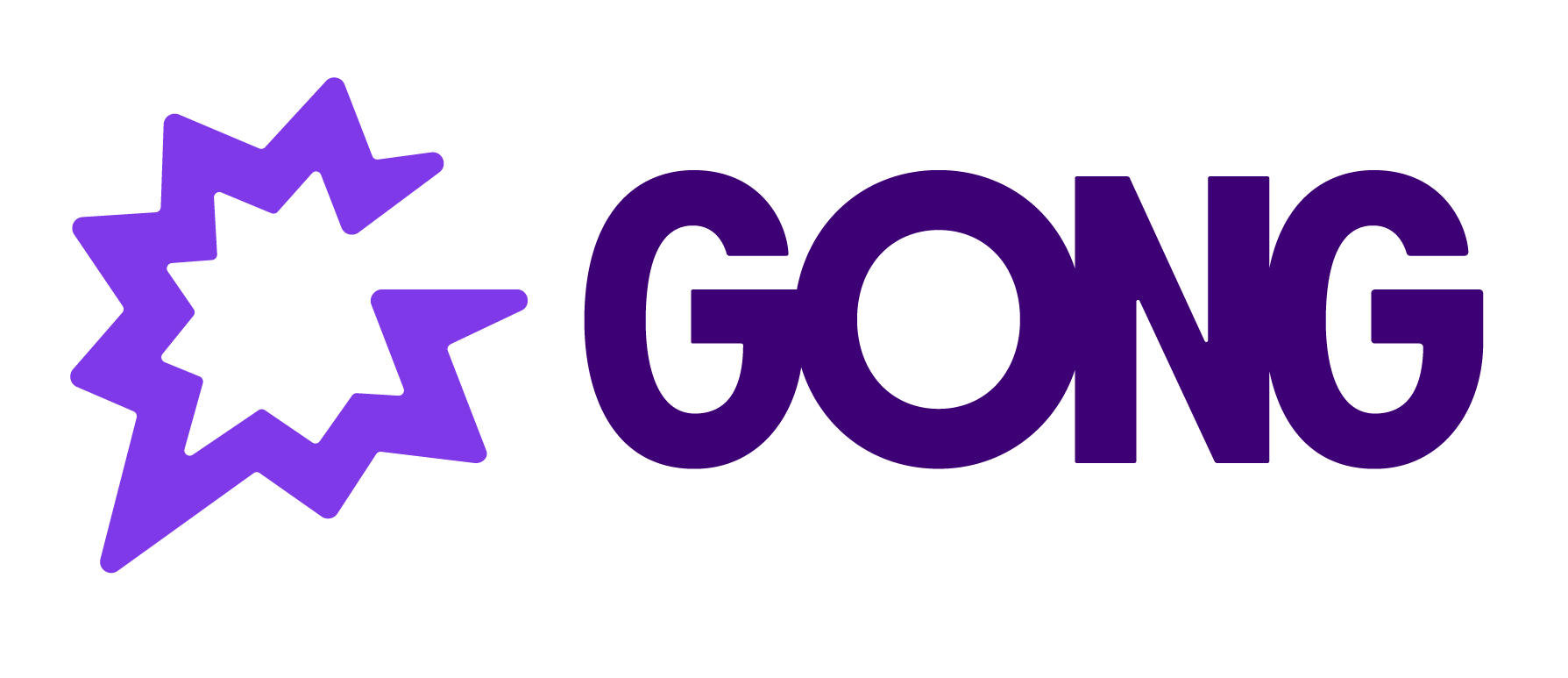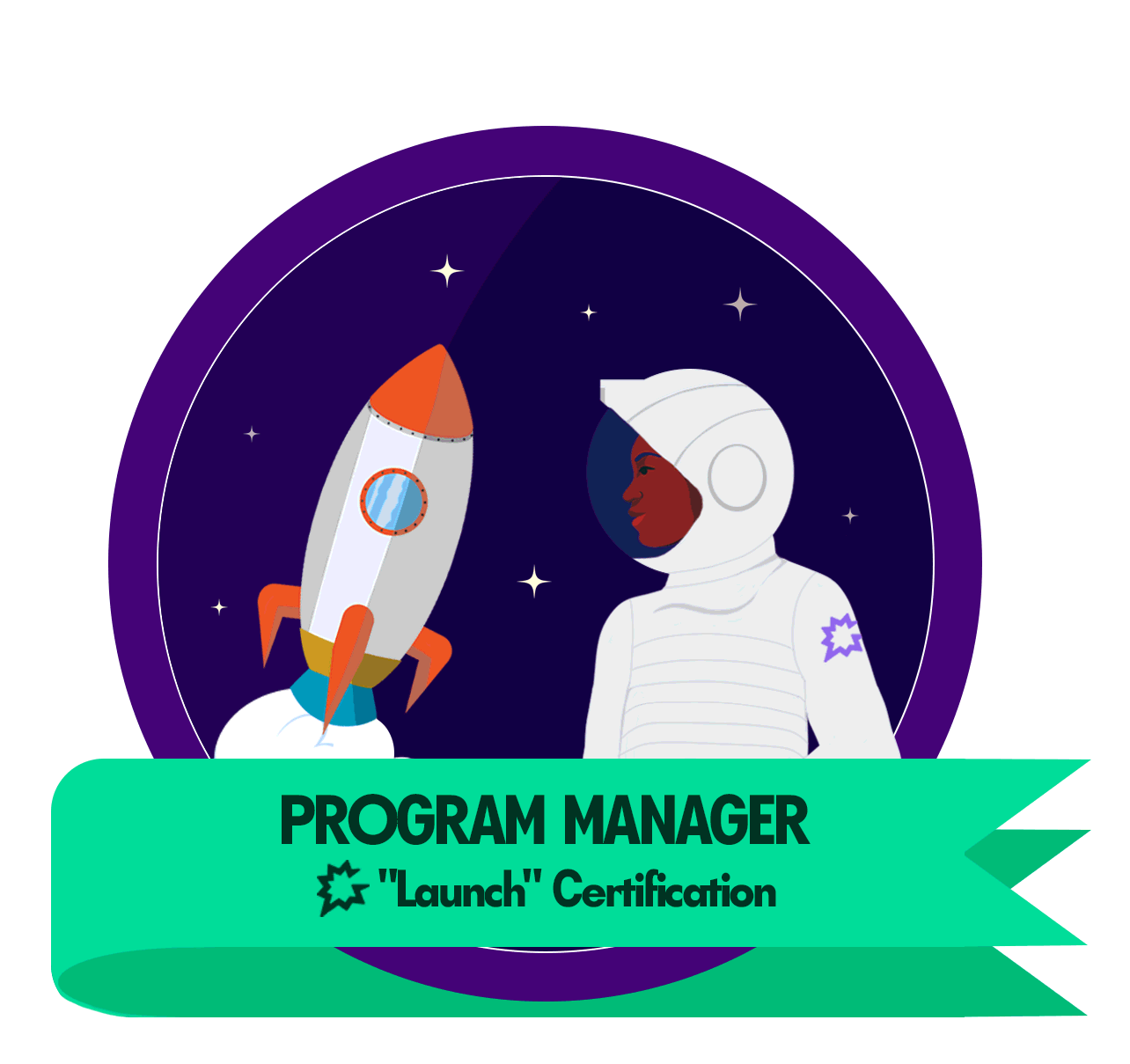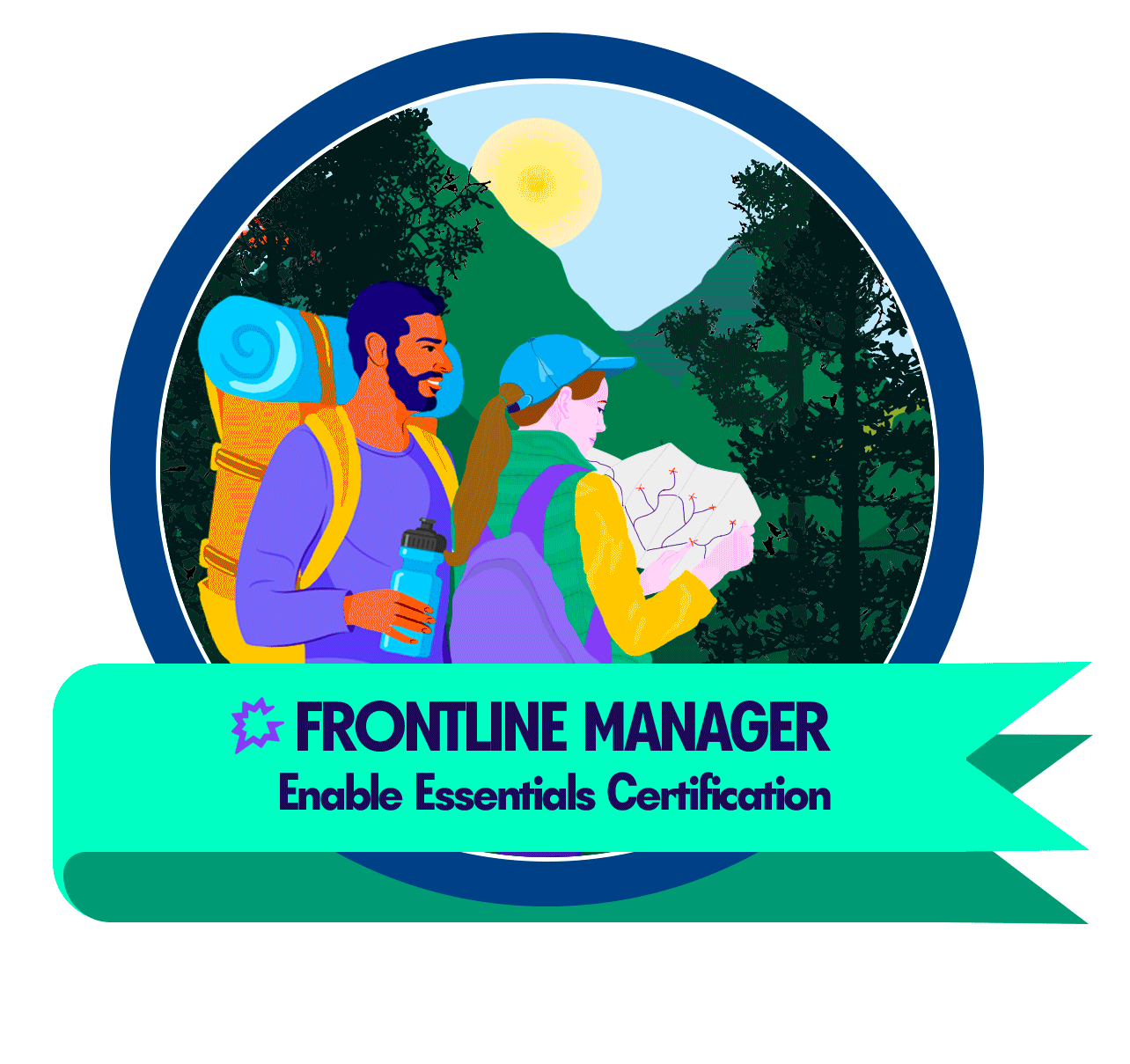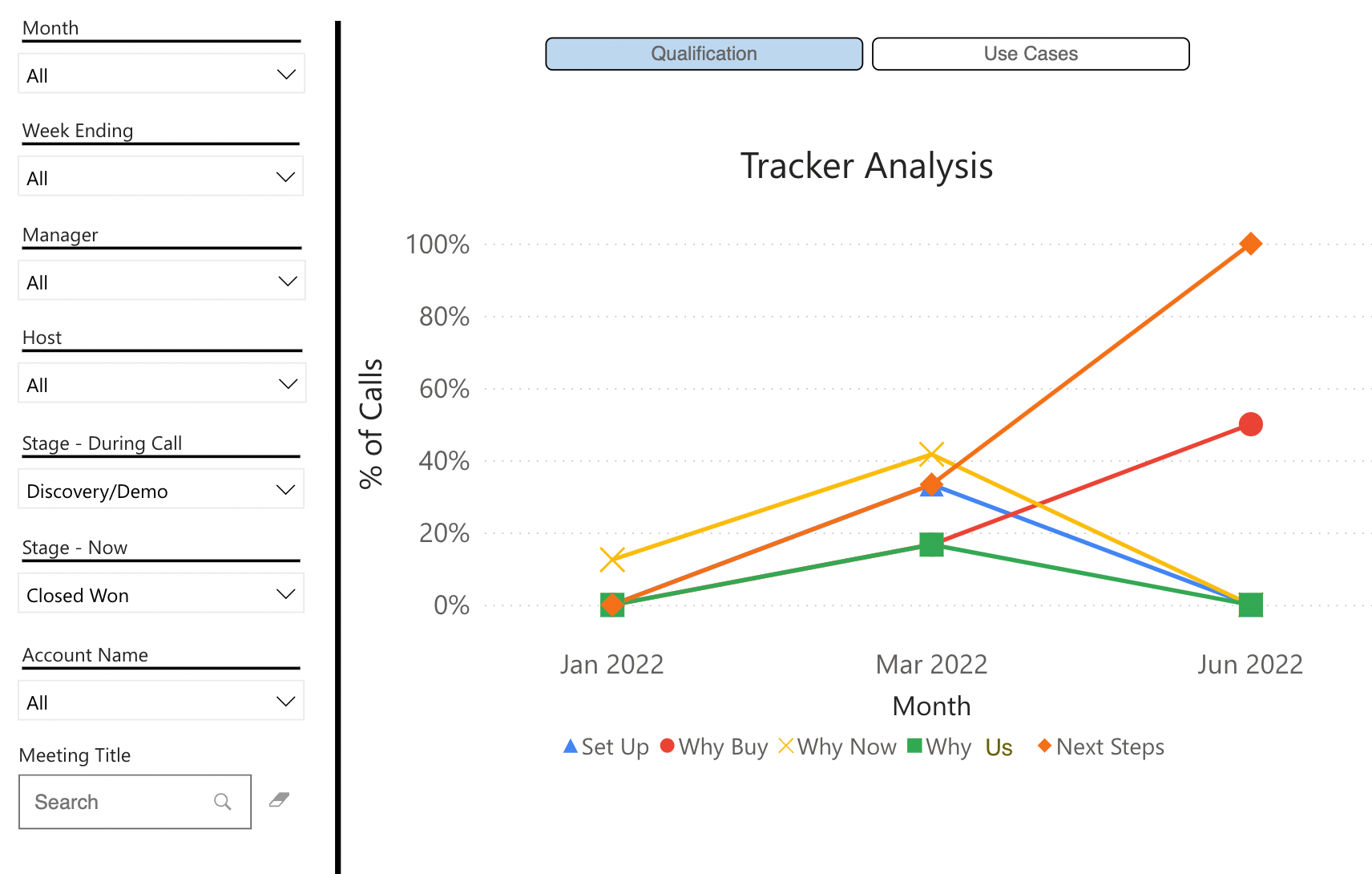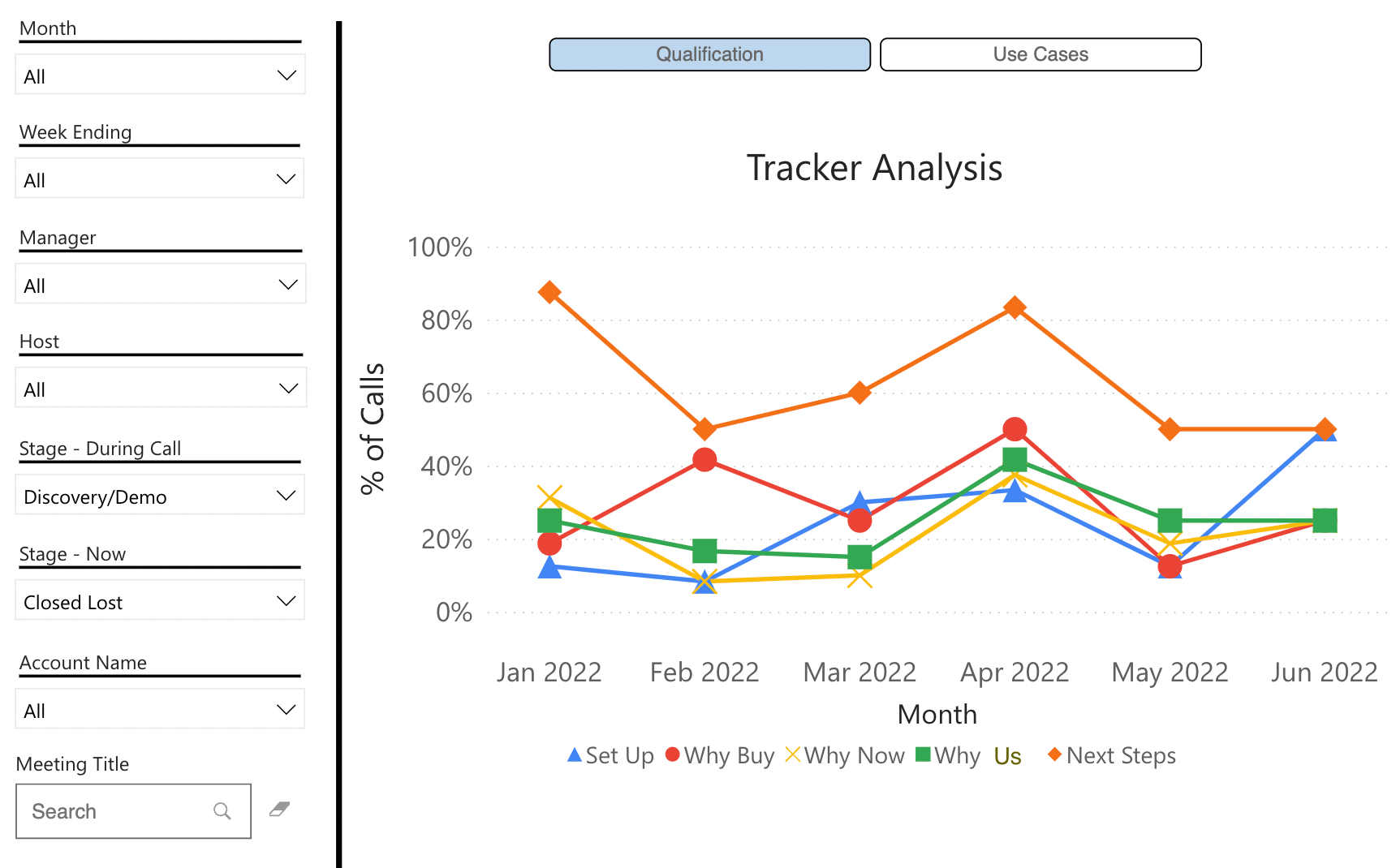Hello fellow Gong Community! 👋
My organization is interested in tracking whether our reps enforce and follow a specific process / agenda during their calls, or if they let the customer/prospect drive the conversation.
We want to approve or disprove the theory that reps that follow a consistent process within their calls have a higher rate of closing deals.
Examples of Process:
- Discovery Call: Start by setting the agenda, then ask discovery questions to understand the Situation and Pain and Impact, then conclude by understanding any Critical Events and the Decision Process (SPICED framework 😉).
- Demo: Start by setting an agenda, then show the slide deck and present the product, then answer questions, then gather feedback and set next steps.
The Win / Loss analysis within the Deals page doesn’t show any insights specifically around this, so I’m curious if anyone else has found a way to measure this using Gong data?
Thanks in advance! 😊
